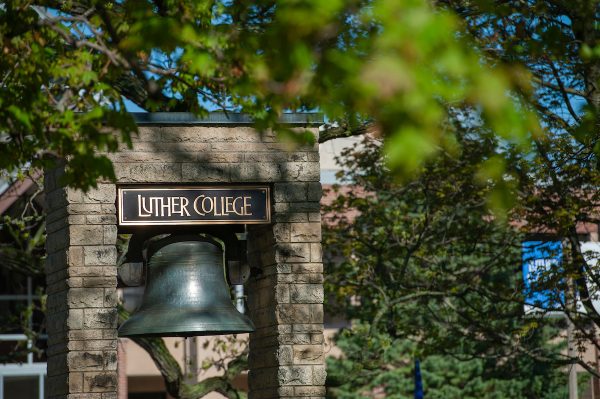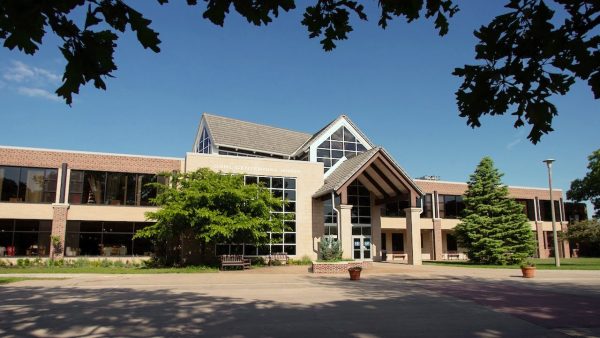Kosovo and Serbia – How far can dialogue go?
Dialogue is at the heart of Dr. Steinar Bryn’s work for the Nansen Academy, and was at the heart of international studies major Hannah Hoffmann’s (‘23) senior presentation. During her presentation of her senior project on the conflict between Kosovo and Serbia on Tuesday, April 11, from 5 to 6:15 p.m, Hoffmann conversed with Bryn directly about the importance, and the limits, of dialogue.
Before asking Bryn a number of questions about the conflict, Hoffmann made sure that everyone in the room understood the background information of the conflict. She included some information on this topic that is not as widely known in the United States. For example, many might not know that the Yugoslavia Wars have had a long-lasting impact on the region. Hoffmann encouraged attendees to research further into the topic.
“It’s important to be informed about things that are going on in the world,” Hoffman said. “It can help you get out of your comfort zone.”
Bryn has proven himself a good educator on these conflicts on various occasions. Attendee Joseph Nuwagaba (‘26) spoke highly of Bryn’s skill.
“It’s fascinating how easy it was for Steinar to explain all of this,” Nuwagaba said. “My knowledge of the conflict was close to zero. I just knew there was one, but now I understand it a bit more.”
During the lecture, the idea of a “forgotten conflict” was introduced. Bryn knows that the Balkans region is seldom present in the media. He then went on to explain why media coverage is so selective.
“There are strong lobby groups that help push certain conflicts to our attention,” Bryn said. “And then there are also some conflicts we humans simply have more interest in.”
Bryn explained the critical role of the European Union in the conflict.
He claimed that in order for both nations to join the EU the exact borders between them would have to be established. All members of the EU would also have to recognize Kosovo as a sovereign state, which, so far, five EUmembers refuse to do.
“Albanians have a dream that is hard to give up on, which is complete independence,” Bryn said. “There is a logical discrepancy there, because breaking borders is an important value of the EU, but in order for both to join they want to have them establish borders, just so they can break them down as soon as they enter the EU.”
In order to move forward, according to Bryn, both Kosovo and Serbia have to recognize the interdependence they already have. A possible solution could then be to reconsider the definition of a border. He compared the situation to the Israel-Palestine conflict, where both nations claim Jerusalem.
Whether these ideas could really resonate with Serbs and Kosovo-Albanians is uncertain. The gap and the distrust between them remains high, and in order to join the EU establishing a fixed border is non-negotiable.

![Hannah Hoffman (‘23) [left] and Dr. Steinar Bryn [right] discussed the current conflict between Serbia and Kosovo. Photo by Verena Mueller-Baltes (‘26).](https://www.lutherchips.com/wp-content/uploads/2023/04/news3-900x600.png)





Kari • Apr 24, 2023 at 3:25 pm
With Al the respect to everyone it is very clear by history and by seeing now the situation in Kosovo, Serbia has nothing there Kosova was always Albanians living there way before the Serbs remember Serbs came in Kosovo after world war 2 with Russia helping , to kick out Albanians and occupying but that didn’t work it’s so simple tell Serbia to pay for demages they have done in the entire region Bosnia Croatia and Kosova and send them to Putin in Russia that’s we’re they belong !!!! God bless freedom and democracy